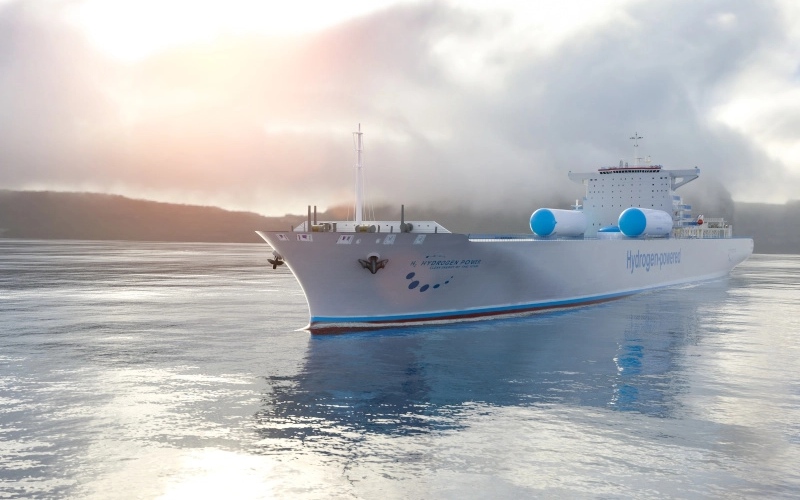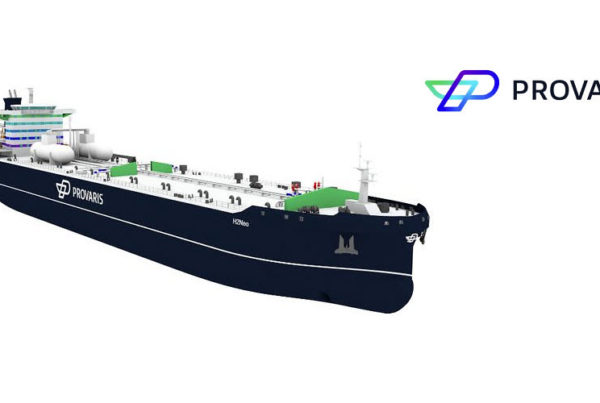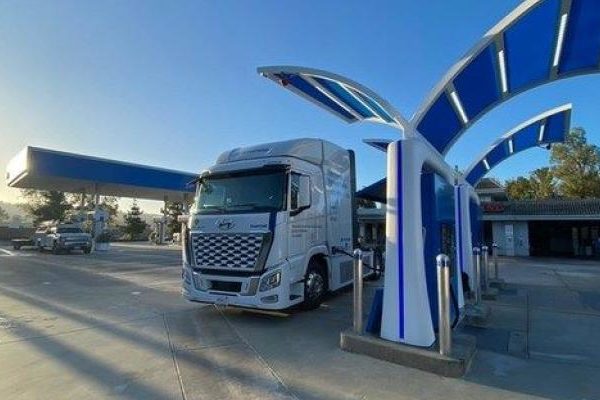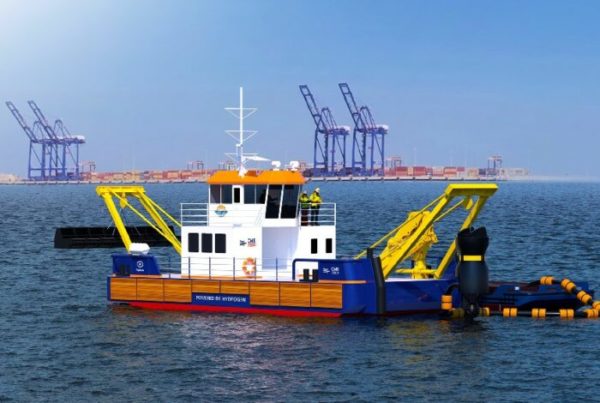
Hybrid hydrogen ship propulsion is an extremely promising solution for emission-free marine transport. In the spectrum of alternative drive systems, it is still much less widespread than diesel and gas generators. However, development is progressing at a tremendous pace, as it should. This is also thanks to a variety of research and funding programs that aim to make hydrogen suitable for ship propulsion. Hydrogen is thus a promising energy carrier for shipping.
With our many years of experience in the field of electric drives, we always keep a close eye on the development of new technologies.
Baumüller is a partner for shipyards, system integrators and ship owners, as well as being an independent supplier of complete systems.
How does a hydrogen drive work on a ship?
Essentially, ship propulsion on this basis always entails an electric motor in the drive train. The energy for this drive is generated in fuel cells, for example. Fuel cells are energy converters in which a fuel like hydrogen reacts with an oxidizing agent like oxygen. In the process, water, electrical energy, and heat are generated. In ship drives, the reaction inside the fuel cell is automatic and does not need to be artificially induced, but it is instead catalyzed. All that is needed is a continuous supply of oxygen from the environment and hydrogen. The latter must be stored and carried on the ship in high-pressure or refrigeration tanks. As an alternative to the fuel cell, there are also hydrogen engines. These generate electrical energy in a process that is analogous to that of conventional generators that use fossil fuels. The hydrogen can be used as a gas or bound in a carrier liquid (e.g. LOHC technology).
Use of hydrogen with our electric motors
Since hydrogen ship propulsion systems involve one or more electric motors, this development is particularly interesting for us at Baumüller. After all, this is our core expertise. We build extremely efficient motors, including the necessary converters and the corresponding control units. Thanks to the options available to us for making individually flexible adjustments to existing systems, our electric motors can also be used for hydrogen drives on ships. Today, our electric and hybrid drives are already being used on a large number of vessels. We have already successfully electrified over 80 ships and boats.
The fuel challenge: transport, storage, infrastructure
A major issue is the fuel itself, as well as its storage and transportation. These factors pose major challenges. In today’s mobility sector, there are several viable storage variants available. Two of them are particularly widespread:
- High-pressure gas storage
- Liquid gas storage
In high-pressure gas storage, hydrogen is stored in pressure tanks. For this variant, the space requirements of the tanks are the biggest concern. In order to achieve ranges comparable to heavy oil or diesel, the hydrogen must be highly compressed. The greater the compression, the less space required on the ship. However, this solution has its limits. These limits are imposed in part by the pressure potential of the tank designs and in part by the energy required for compression.
“Hydrogen offers immense potential for ship propulsion in terms of both the climate footprint and overall sustainability.
At maximum compression, hydrogen is in its liquid phase. This is therefore the point of maximum space efficiency. Extremely low temperatures are required for this to happen. At -253 degrees Celsius, the element liquefies, and it can be stored in cryotanks and is then highly fit for transport. However, one problem that cannot be avoided is “evaporation losses.” This is particularly problematic if the hydrogen is to be stored over a long period following liquefaction. Ideally, this would require a suitable infrastructure including the production of cryogenic liquid hydrogen in or near the ports.
Despite all the challenges, the following holds true: Progress is clearly gathering momentum. Europe and Germany in particular are promoting the development and research of many technologies related to hydrogen propulsion. This also includes smart and efficient solutions for storage and transport, which are currently being driven forward vigorously. Against this backdrop, the prospects for ship propulsion can only be rated as very good.
Read the most up to date Fuel Cell and Hydrogen Industry news at FuelCellsWorks





